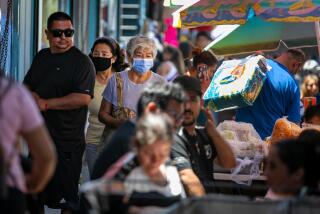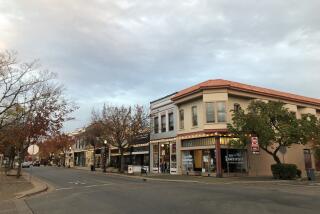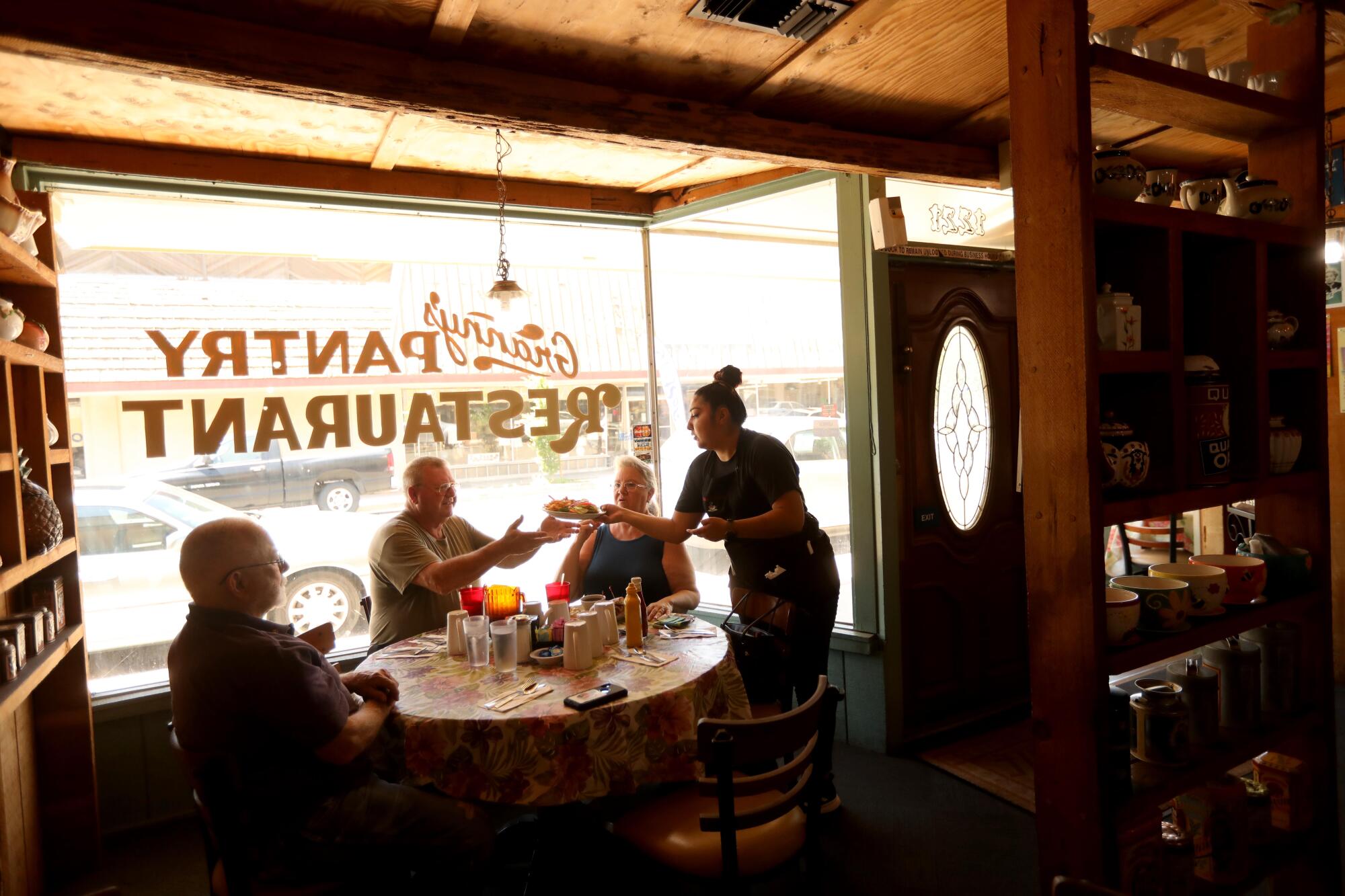
ATWATER, Calif. — The leaders of Atwater had just declared it a “sanctuary city” for businesses in defiance of California stay-at-home orders when they showed up at the future home of Jessie Chauhan’s Rapid XPress Car Wash.
They came last month to the dirt lot by Highway 99 for a cheery civic ceremony that felt extra symbolic in the midst of a pandemic that has wrecked the economy: A groundbreaking ceremony.
Chauhan, who also owns a car wash in nearby Merced, had been requiring employees to wear masks and have their temperatures taken. Each night, his mother disinfected his keys and cellphone and made him change clothes in the garage.
He immediately noticed that officials coming to his groundbreaking on May 18 were unmasked. When the city manager approached, Chauhan extended his arm for an elbow bump, but she reached out for a handshake. In a split second, Chauhan uncurled his fingers and accepted it.
“I did it,” Chauhan said. “Obviously, I sanitized after.”
Caving in to the moment and accepting a human gesture that has all but evaporated during the coronavirus outbreak “felt really nice,” he said. Still, it didn’t change his belief that the way out of the health crisis would be paved with the colder reality of social distance and curtailed niceties.
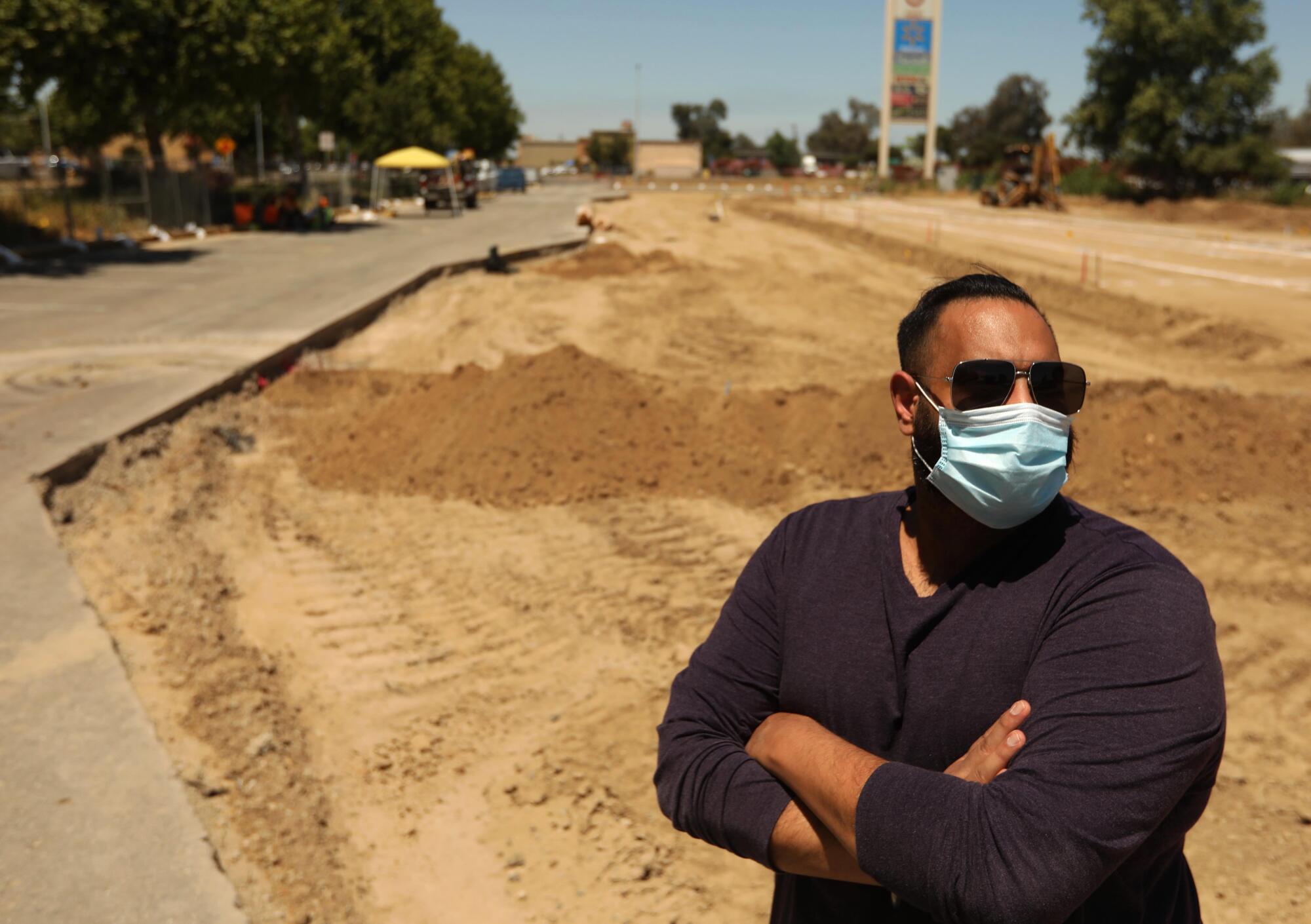
In this Central Valley city, where there have been 27 cases of COVID-19 among its 30,000 residents, reopening has been marked by a slew of awkward interactions and questions about how to both resuscitate a flailing economy and stay safe from a deadly virus.
The “sanctuary city” designation, designed to benefit from the buzz of a phrase used in the context of protecting undocumented immigrants, won Atwater support from officials across the U.S. But it also provoked anger among some residents who called it political grandstanding.
“That’s especially gross here in Atwater because this is a community supported by agriculture,” said Caleb Hampton, 30, a special education teacher. “There are plenty of undocumented people who support our local economy and are part of our community.”
Chauhan, 33, had to shut down his Merced carwash for a few weeks in April and temporarily lay off about 15 employees. Any relief he feels about reopening is tempered by fear that cases will rise and everything will get shut down again.
“I’m OK we’re reopening. But I’m not OK with not following the social distancing rules,” he said. “I want my employees and myself wearing masks, gloves, all that, to protect them and others. But at the same time, the show must go on, right? We’ve got to reopen.”
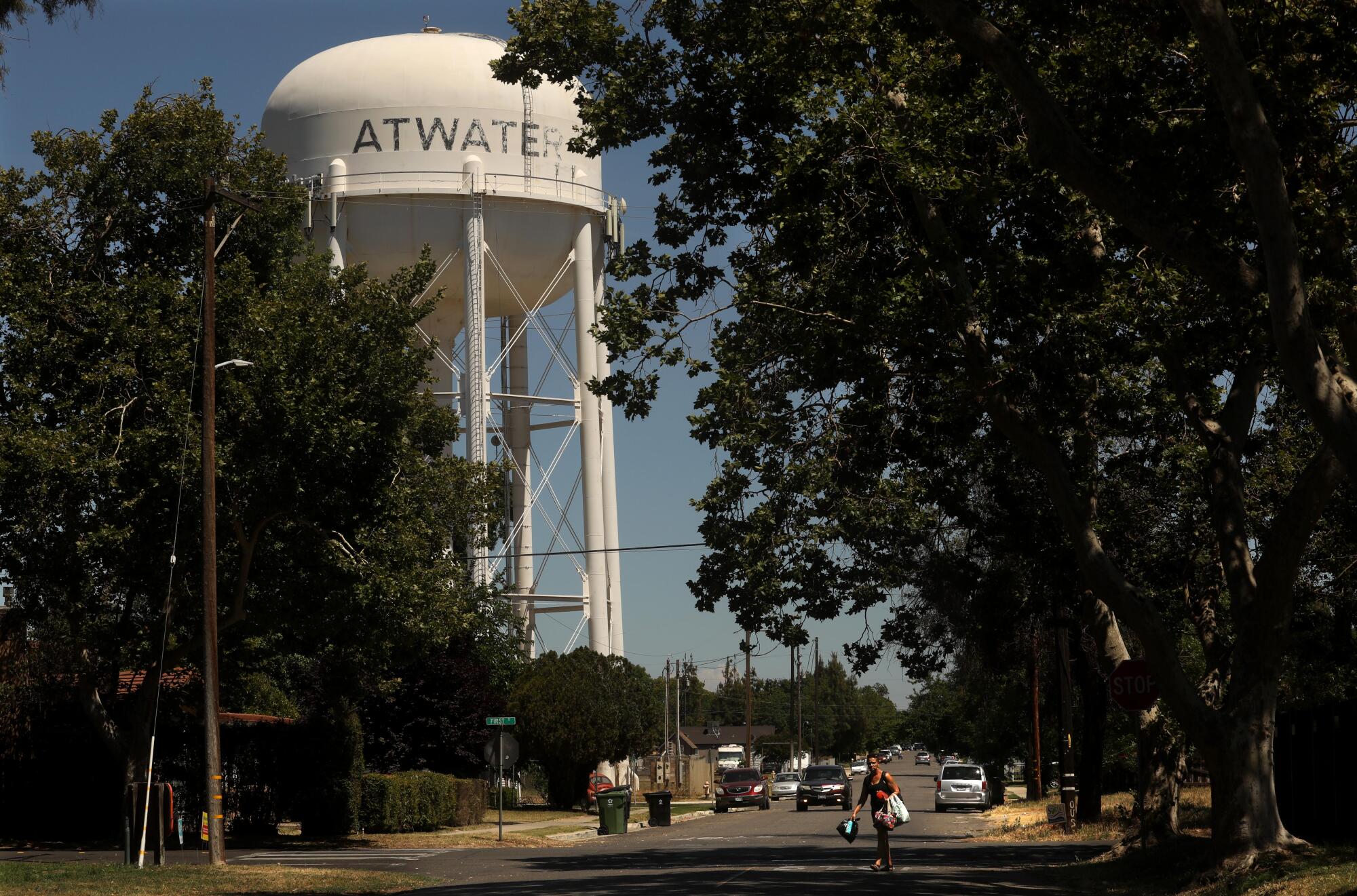
The shutdowns walloped Atwater just as it was starting to claw back from the financial brink after the Great Recession.
Last year, the state auditor ranked Atwater the second-most financially distressed city in the state, behind Compton. But in July, Atwater passed its first balanced budget in eight years and ended a nearly decade-long Friday furlough for municipal employees that kept City Hall open just four days a week.
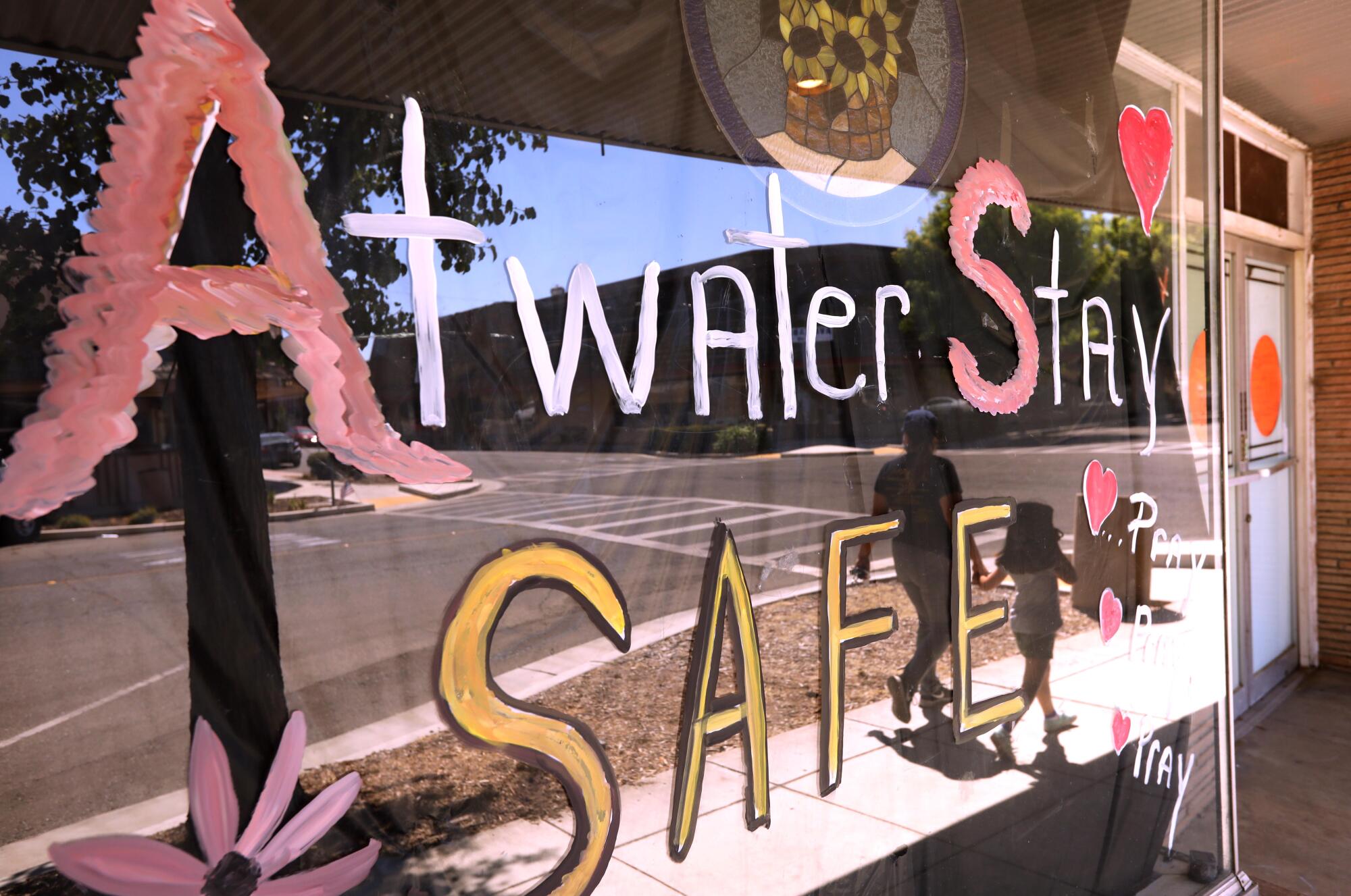
The sanctuary resolution said local businesses that had been the catalyst for recent economic recovery were now “perilously on life support,” and it was their Constitutional right to make a living “in the face of tyrannical government overreach.”
The politically potent “sanctuary city” label was the brainchild of Mayor Pro Tem Brian Raymond, who said he knew that “using the state’s own language against it” would turn heads in liberal California.
Mayor Paul Creighton quickly found himself on “Fox & Friends,” calling California’s lockdown orders “draconian.” Politicians and police chiefs from across the U.S. reached out, saying they too wanted to create sanctuaries.
In a widely shared statement, Merced County Sheriff Vernon H. Warnke, an Atwater resident, said that although he initially enforced the rules, even citing a pastor for holding a church service, he would no longer do so.
“I truly believe that Governor Newsom’s motivation is to have the majority of the citizens (and illegal residents) dependant [sic] on governments assistance so he could maintain this control once this ‘pandemic’ is declared over,” Warnke wrote.
Atwater residents have had to navigate varying levels of restrictions at the state, county and city levels.
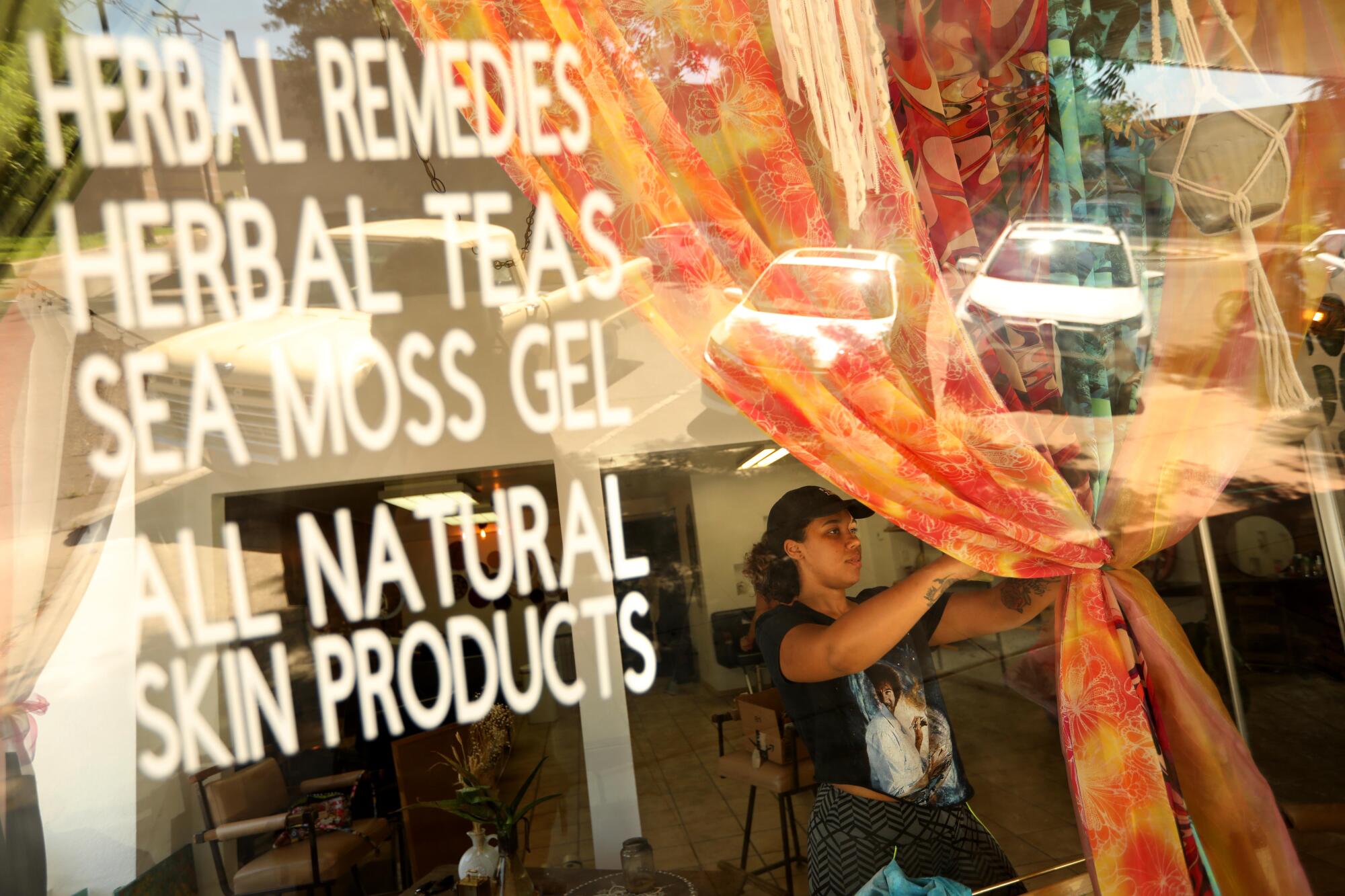
“We have heard and experienced much confusion from residents, and from business owners,” Merced County Public Health Director Rebecca Nanyonjo-Kemp said in an email.
Atwater resident Stacie Martinez, who still stays home as much as possible, called the sanctuary decision brash and concerned only with the fate of business owners, not the safety of workers or patrons. She said people seem to be wearing masks a lot less now, and that “it feels like there’s a stigma, like, ‘Oh, you must be really afraid.’
“I’m not hiding at home, wearing a mask and surrounded by hand sanitizer, hiding behind a chair,” she said. “We go out. We just take precautions.”
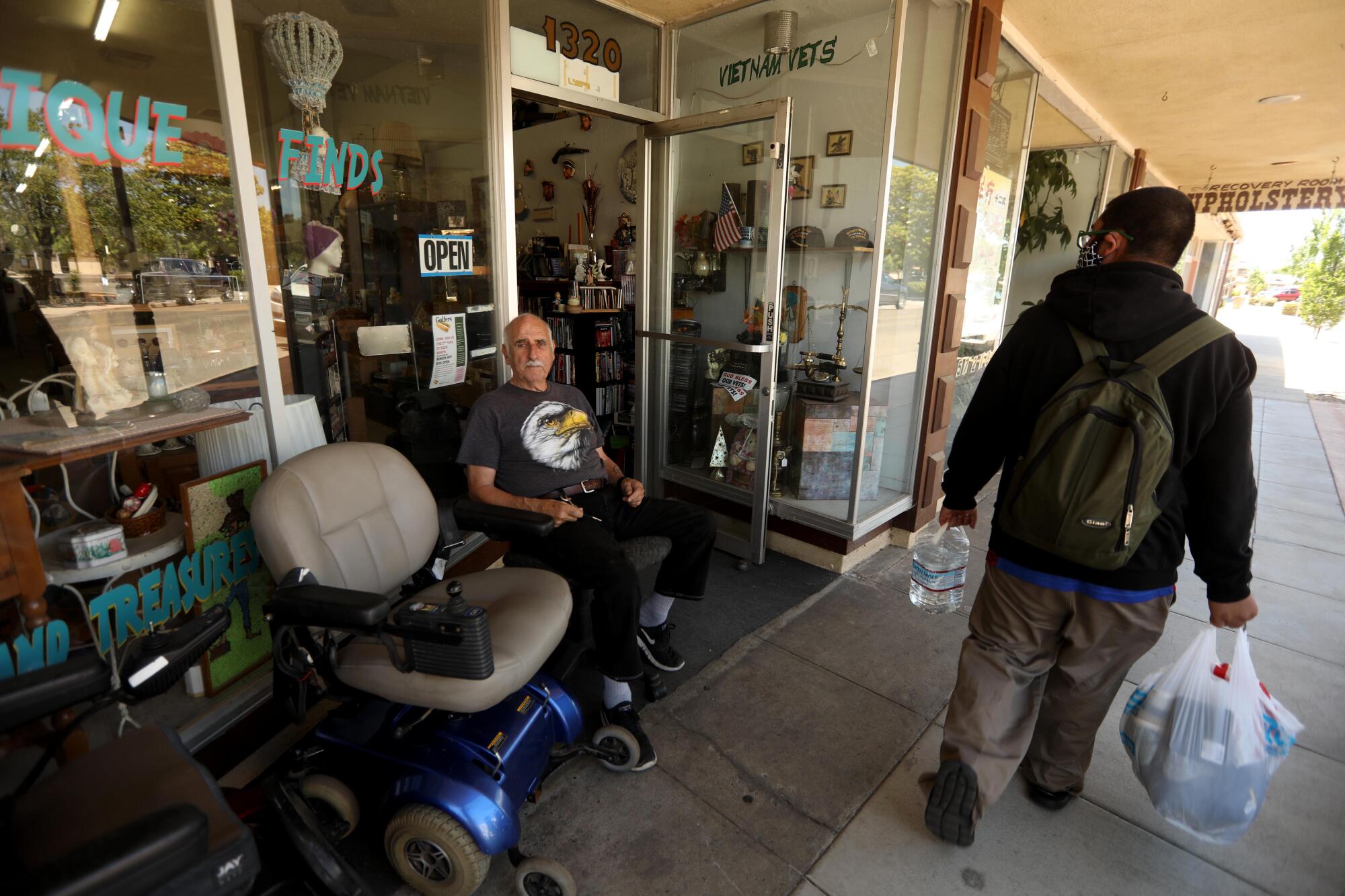
Meanwhile, customers have not exactly rushed back to reopened mom-and-pop stores.
Last week, Reyna Bautista reopened The Sewing Room, an alterations shop she runs with her daughter. It was 106 degrees outside and warm inside, but she wore a cloth face mask as she leaned over a sewing machine, altering a black dress for the only customer who had called that afternoon.
This time of year is usually busy with prom dresses and graduation outfits.
“If this keeps going like this, we cannot stay in business,” Bautista said. “I am worried.”
Next door, Rosa Pedraza peeked one eye through a miniblind when a Times reporter knocked on the door of Rosa’s Hair Salon, where she was seeing customers by appointment.
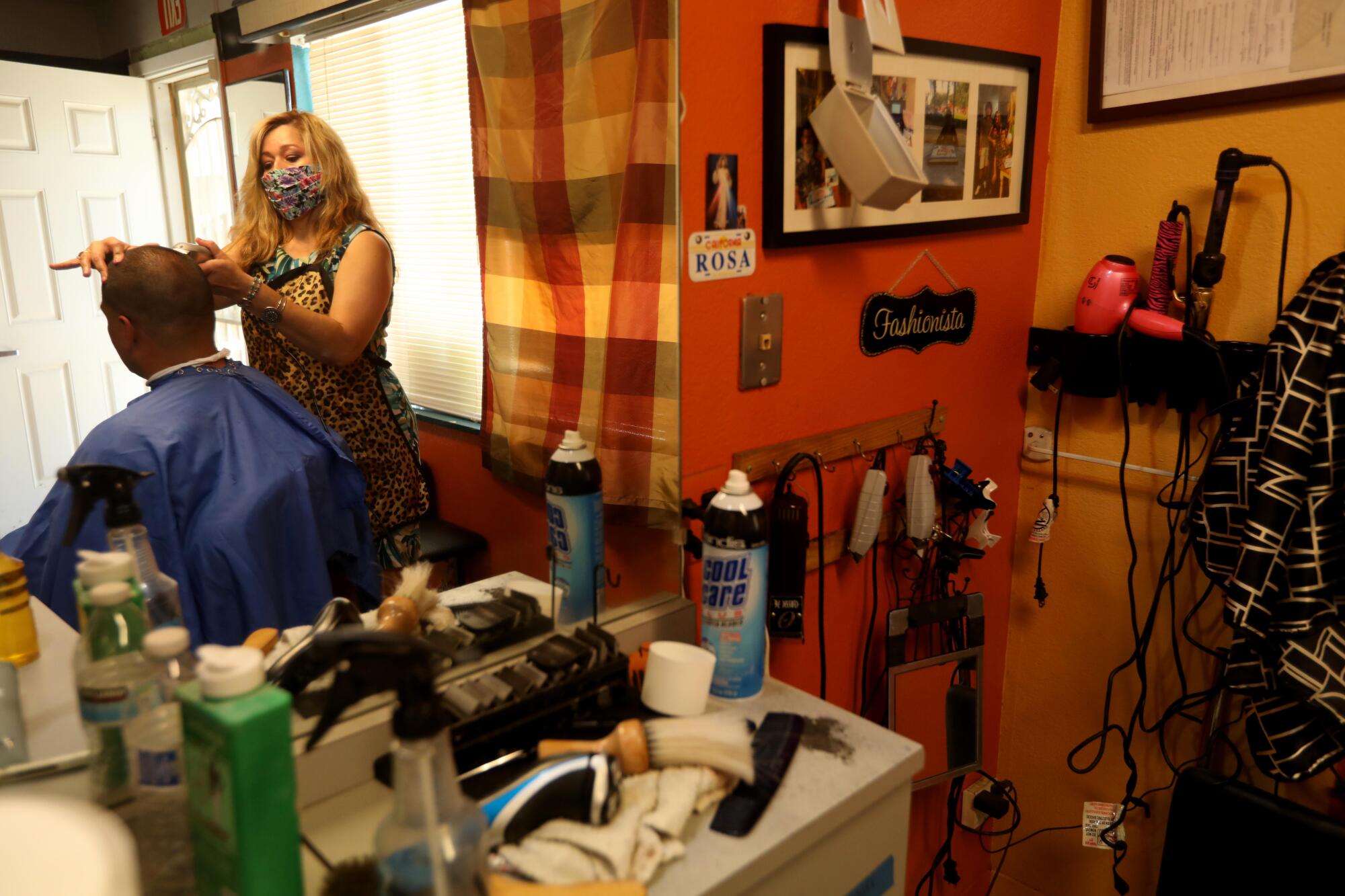
“The city said it’s OK, but the governor said it wasn’t,” Pedraza said, visibly relaxing only when told that Gov. Newsom, just that afternoon, had said that counties could reopen hair salons.
Down the street at The Pawn Shop, Michael Gose spoke to customers from behind three-sided plexiglass barriers in front of the cash registers.
“It’s been kind of slow,” Michael Gose said. “People are still huddled in their homes, even though we got the go-ahead.”
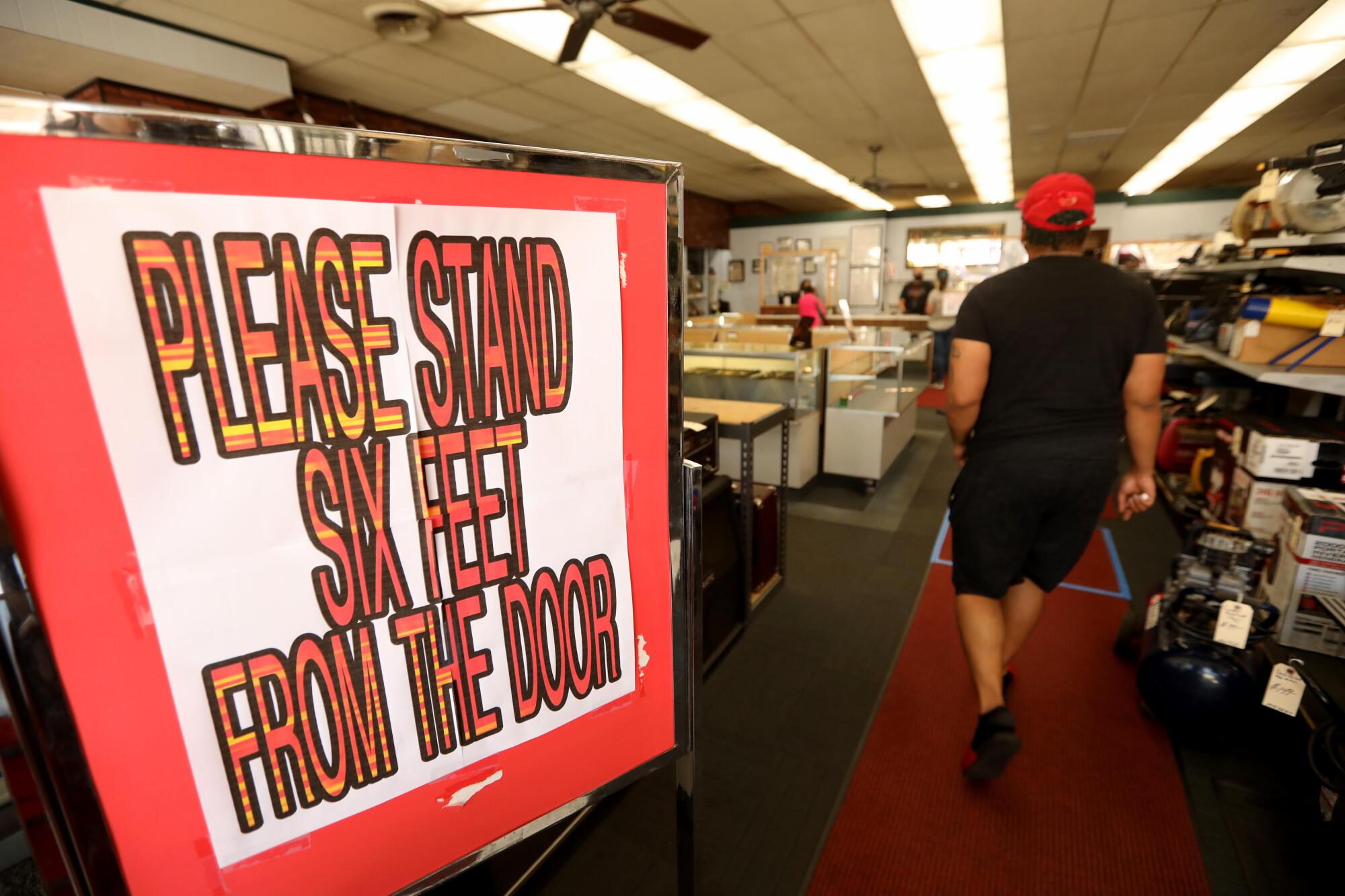
When the beloved Granny’s Pantry Restaurant opened its dining room last week, Fawn and Larry Oliver, 65 and 69, were delighted to be the first customers.
They come every Sunday, calling it the Church of Bacon and Eggs.
“This feels really, really good,” Fawn Oliver said.
But owner Jean Kirby, 77, worried aloud about the smaller-than-normal breakfast crowd. Kirby, who has worked at the diner since 1979, arrived early, thinking there would be a line down the street. There wasn’t.
By lunch, most tables were full. No one wore masks.
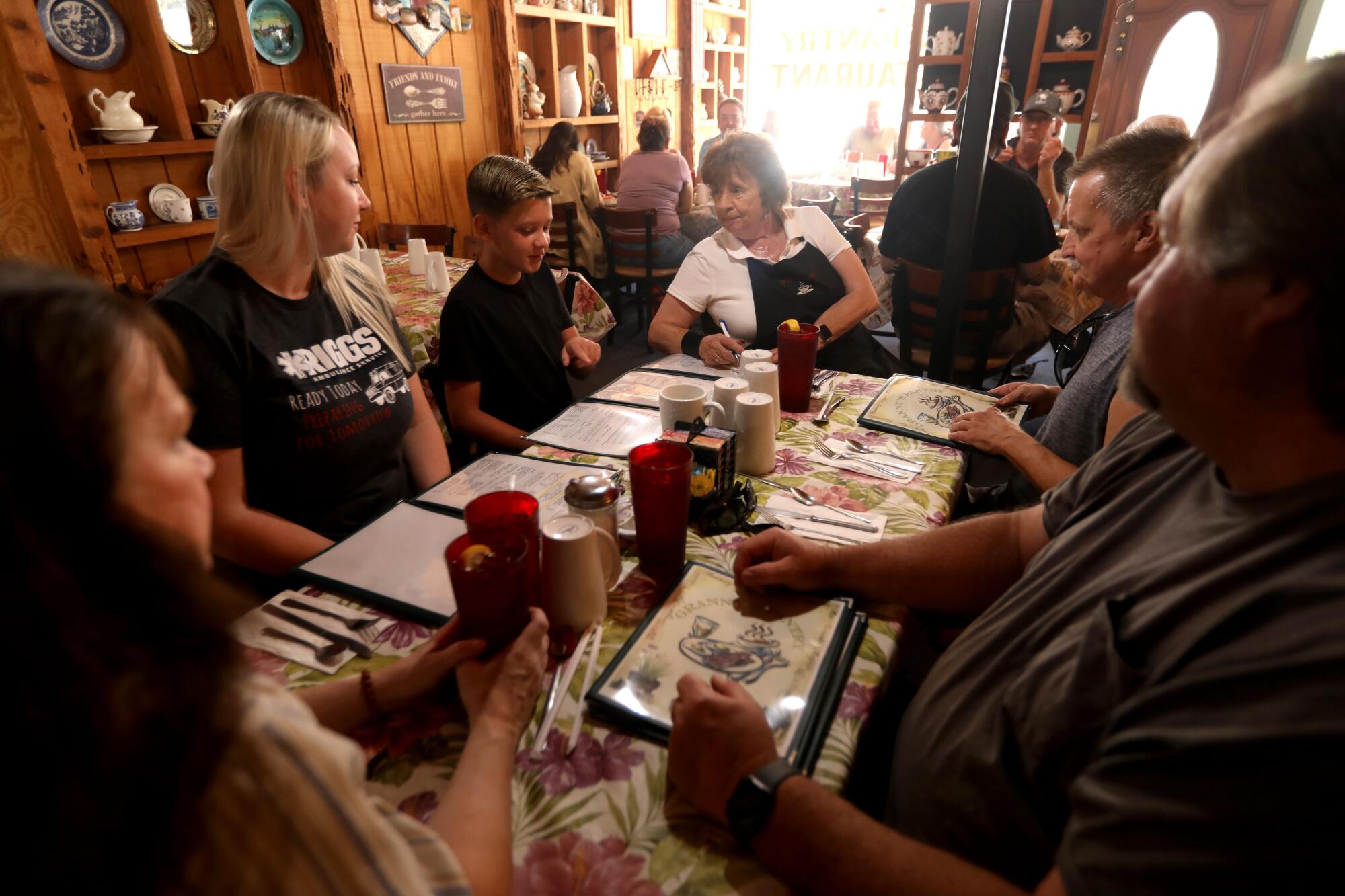
For Granny’s Pantry, the sanctuary city designation was a boon. Donations poured in. One woman who heard the mayor on the “Glenn Beck Program” drove five hours from Upland to hand Kirby an envelope stuffed with $4,000.
At a City Council meeting last week, three of the 14 people in the crowd wore masks. Council members embraced and shook hands with police officers being honored for National Police Week.
Councilman Danny Ambriz, the only person on the dais wearing a mask, assured the crowd he was not doing so because he disagreed with the sanctuary city designation. On the contrary, he supported it, and had only missed the vote days earlier because his wife had just given birth.
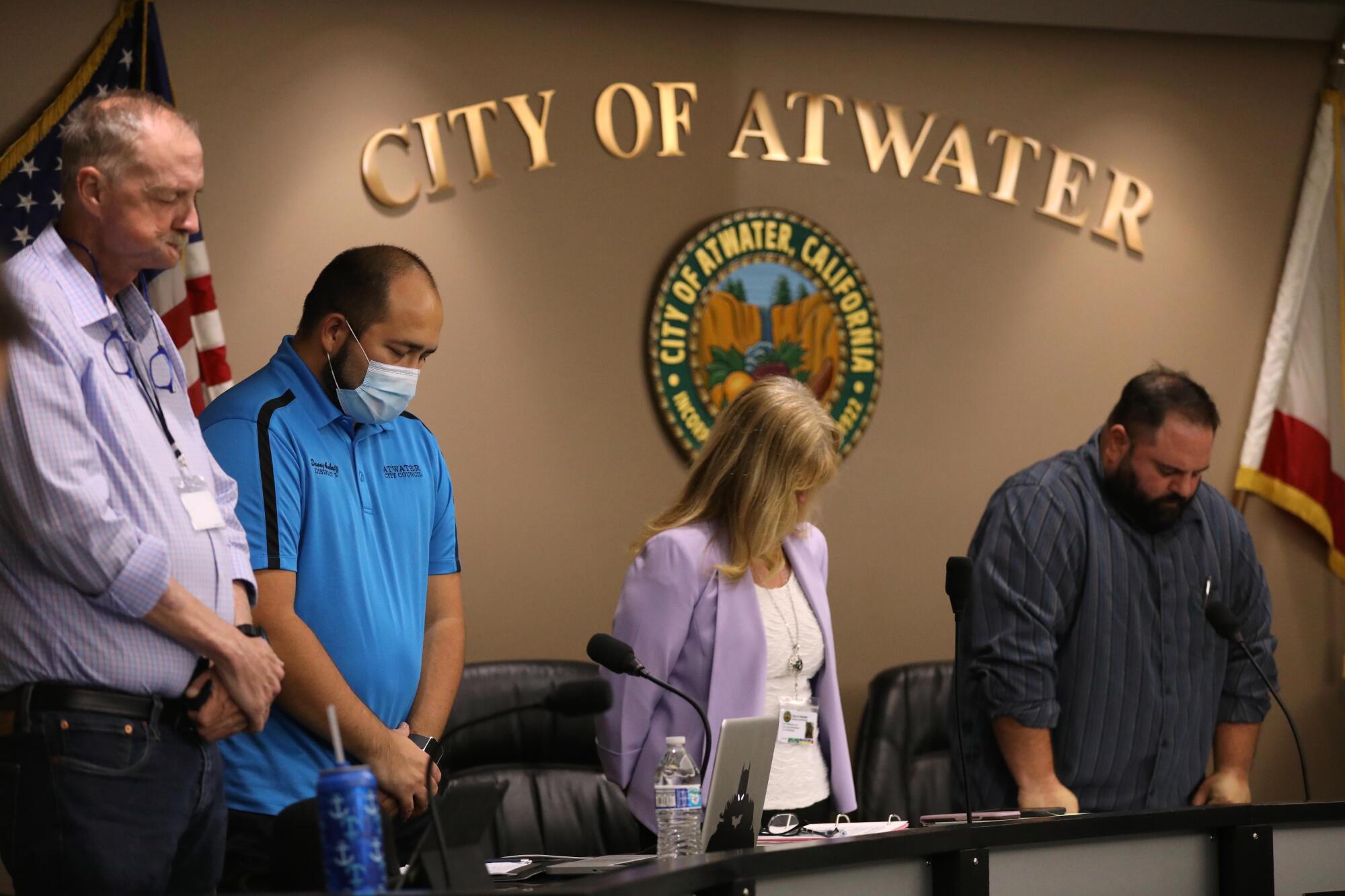
“Yes, I shook hands with the officers tonight,” he said. “But I know afterwards I’m going to go home, and I’m going to wash my hands. I’m going to change out of my shirt, and then I’m going to love on my child. I know the steps I’m supposed to take. I’m hoping the rest of our residents know as well.”
Councilman John Cale, a cancer survivor, told the Times that he sees the virus this way: If he’s scared of dying, he’s not living.
Atwater Police Chief Michael Salvador said he stopped requiring officers to wear masks about three weeks ago. More concerning than the virus, he said, was the economic fallout and a significant rise in domestic violence cases and property crimes since the stay-at-home order began.
For weeks, police cars sported bumper stickers that said: “Is Your Trip Necessary? Stop the spread.”
They were pulled off last month. Now, the cars have new license plate frames reading: “Shop Local.”
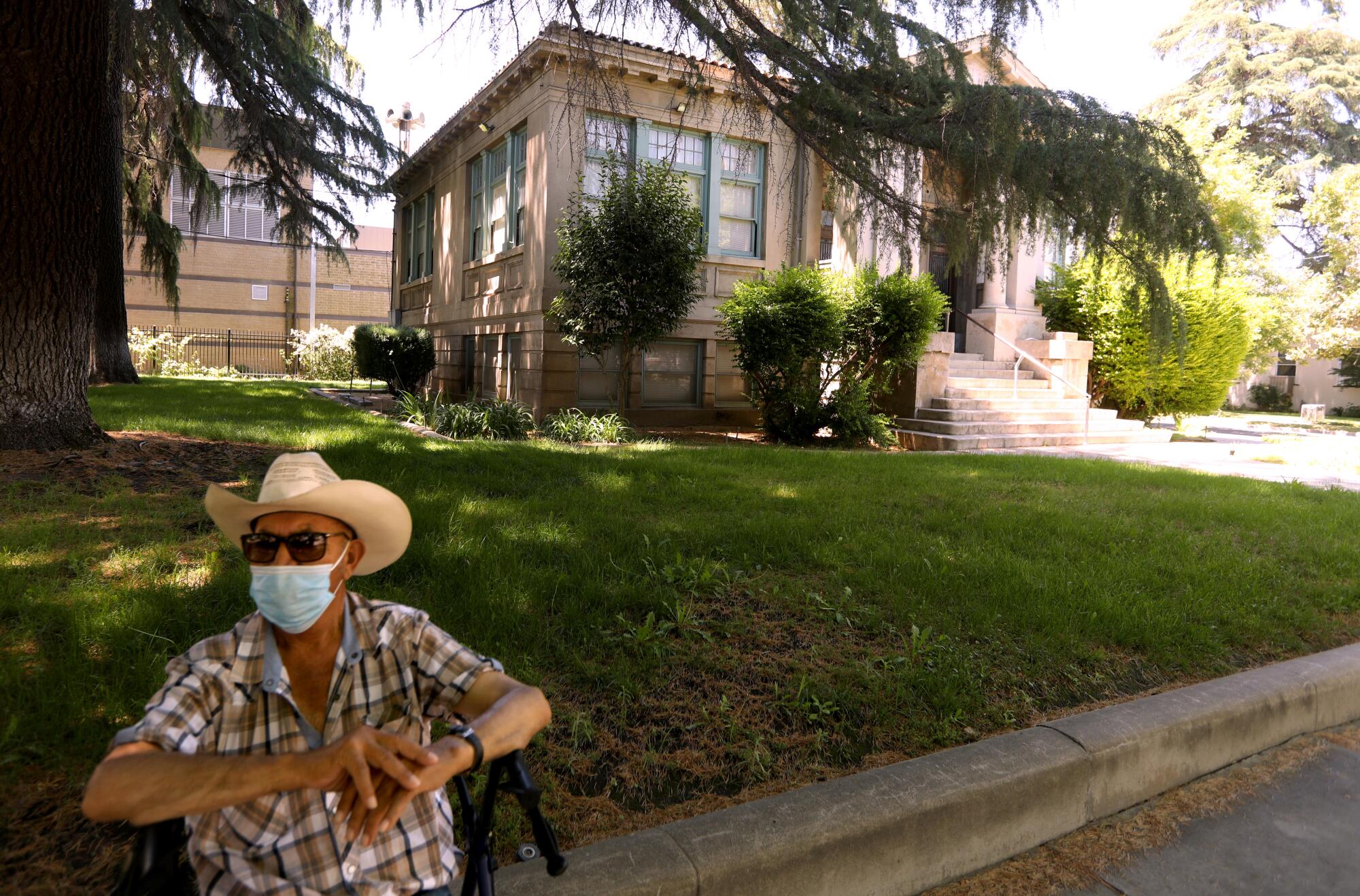
More to Read
Sign up for Essential California
The most important California stories and recommendations in your inbox every morning.
You may occasionally receive promotional content from the Los Angeles Times.
